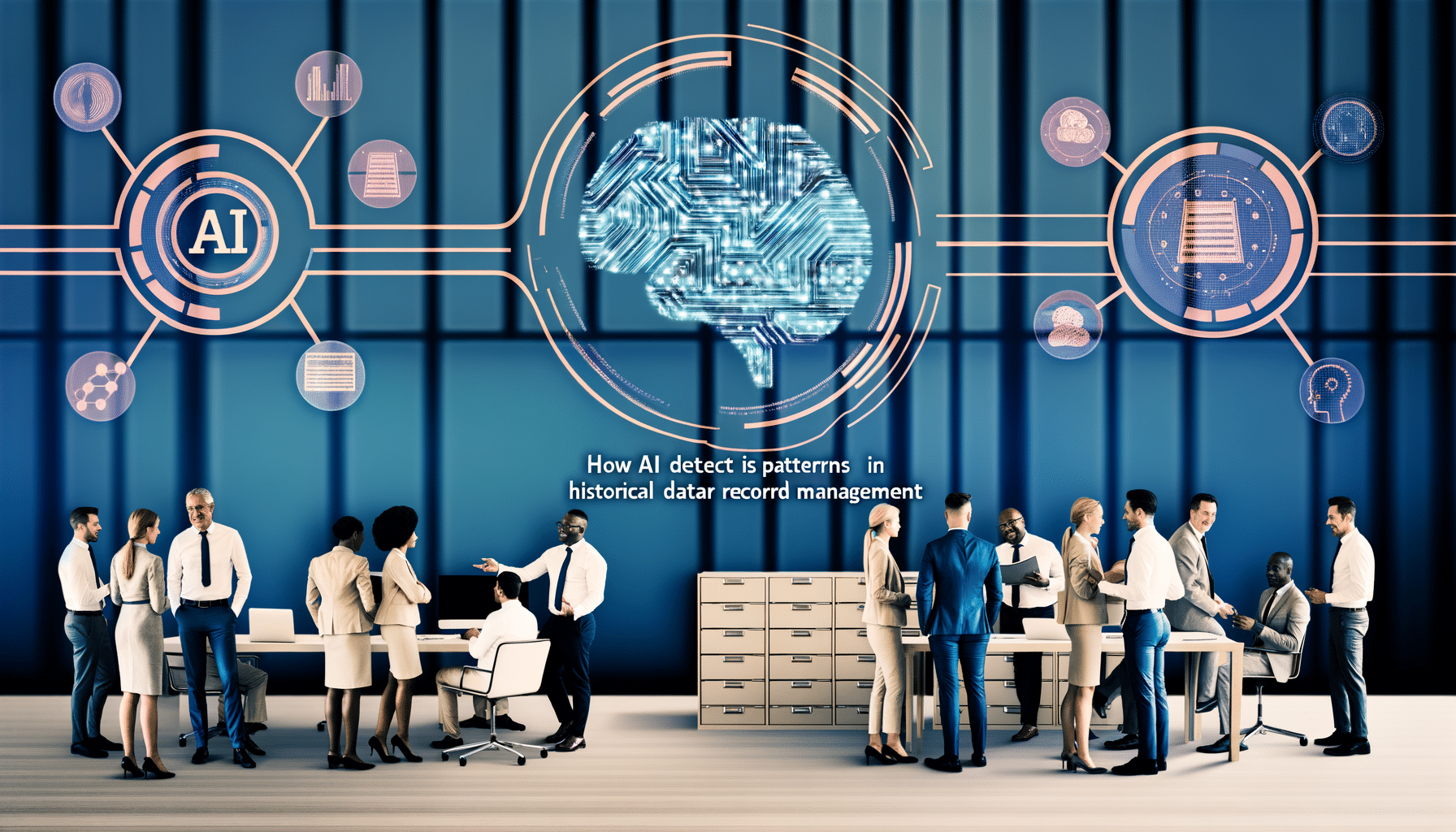In the ever-evolving landscape of technology, artificial intelligence is redefining how we approach record management—a task that was historically mundane and labour-intensive. Transitioning from analogue to digital, and now to the era of AI, we have unparalleled tools at our disposal to manage records intelligently and efficiently. Today, I invite you to explore how AI detects patterns in historical data to enhance record management processes.
The Intersection of AI and Historical Data
AI’s ability to process vast amounts of historical data is nothing short of revolutionary. Imagine the complexities involved in handling loads of records daily—AI simplifies this significantly by recognizing patterns and trends within historical data. This leads to more informed decision-making, streamlined operations, and notable improvements in record management efficiency.
Why Historical Data is a Goldmine
Historical data contains a wealth of information waiting to be mined. Within its depths lie insights into past decisions, trends, and anomalies that can shape future strategies. However, the sheer volume can make it a daunting task for humans alone. By harnessing AI, we can draw powerful inferences that influence everything from client interactions to compliance management.
AI-Driven Pattern Detection
The crux of effectively utilizing AI in record management lies in its pattern detection capabilities. AI leverages sophisticated algorithms to identify and categorise data, pinpointing trends that would likely go unnoticed through manual inspection. This transforms record management from a reactive process to a predictive one.
Automated Categorization and Retrieval
One of the largest barriers in traditional record management is the manual sorting and categorizing of documents. This is where AI truly shines. It automates the categorization process, ensuring records are easy to find anytime. Using natural language processing, AI classifies documents into pre-determined categories and tags them, allowing personnel to retrieve them efficiently when needed.
Enhancing Security and Compliance
Another advantage of AI’s ability to process historical data is enhanced security and compliance. By detecting irregularities and spotting trends, AI helps in preemptively addressing security vulnerabilities. It also makes compliance management seamless by automating regulatory workflows and ensuring adherence to industry standards like GDPR, HIPAA, and SOX.
Applying Blockchain for Immutable Records
Integrating blockchain technology with AI takes record management to a new echelon of security and integrity. Blockchain provides a tamper-proof mechanism to maintain the integrity of historical records, ensuring they remain unaltered once added. Combining AI and blockchain gives us robust and immutable records, adding an extra stratum of reliability.
Real-Time Activity Tracking
With real-time activity tracking, organizations have an eye on who accesses records and when. This not only boosts transparency but also provides an audit trail to trace any discrepancies or unauthorized access attempts. AI’s real-time tracking capabilities ensure organizations maintain control over their data, gauging access privileges accurately and diligently.
Impact on Legal, Finance, and Compliance Sectors
Legal, finance, and compliance heads tasked with record management are deriving substantial benefits from AI. Its ability to sort, retrieve, and ensure the security of critical documents alleviates much of the stress associated with traditional record-keeping systems.
Substantial Time Savings
AI minimizes the administrative burden by taking over the categorization and retrieval duties, saving substantial time. Time that was once spent sifting through archives can now be more productively allocated towards what truly matters—managing legal cases, handling financial audits, or ensuring regulatory compliance.
Embrace the Future with AI-Driven Record Management
As we forge ahead into this newfound era guided by artificial intelligence, it’s evident that embracing AI for record management isn’t just an added bonus; it’s a strategic imperative. By adopting AI-driven methodologies, organizations can turn their record management from a task into a strategic advantage.
Embark on a journey towards smarter record management today. Leverage AI’s sophisticated pattern-detection capabilities to unearth valuable insights tucked away in your historical data. Together, let’s revolutionize how we harness the power of information to drive efficiency, security, and compliance.
I hope this insight into AI-led record management inspires you to rethink and re-evaluate current practices within your organization. To learn more about how RecordsKeeper.AI is spearheading innovations in this space, stay connected, and follow me for more insights and updates on navigating the digital transformation journey.








